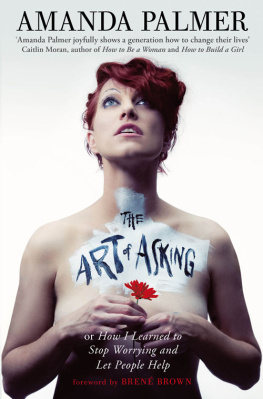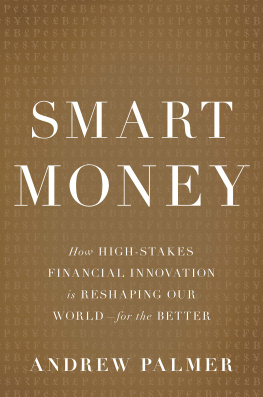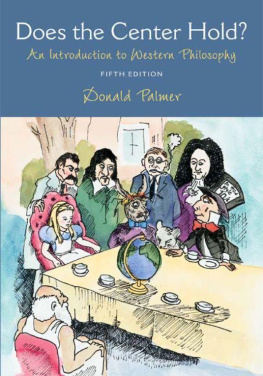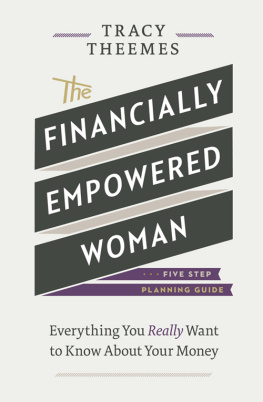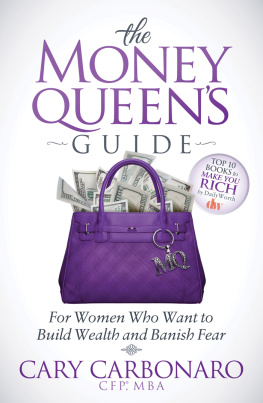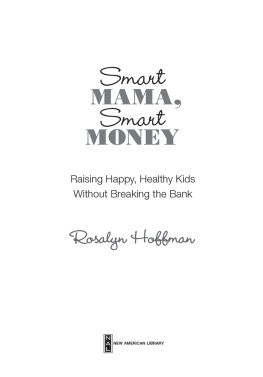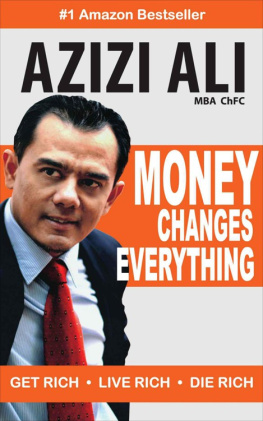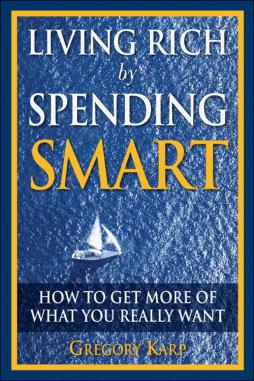Thank you for downloading this AMACOM eBook.
Sign up for our newsletter, AMACOM BookAlert, and receive special offers, access to free samples, and info on the latest new releases from AMACOM, the book publishing division of American Management Association.
To sign up, visit our website: www.amacombooks.org

SMART MOM
RICH MOM
KIMBERLY PALMER
SMART MOM
RICH MOM
How to Build Wealth
While Raising a Family

Dedicated to my amazing grandmothers, Janet Shearer
Johnson and the late Mavis Palmer
CONTENTS
ACKNOWLEDGMENTS
I am so grateful for the immense support network, both personal and professional, that allows me to write about money: My husband, Sujay Dav, who does so much, both visible and invisible, to support me and our family. My parents, Gail Shearer and Chris Palmer, who not only offer me endless encouragement, but also frequently take care of my children. My sisters and girlfriends for letting me bounce my ideas off them, even the terrible ones, and always responding with enthusiasm. My grandmothers, Janet Shearer Johnson and the late Mavis Palmer, to whom this book is dedicated, for showing me how to be a strong woman and mom. My former editors and colleagues at U.S. News & World Report; a working mom couldnt have a more supportive workplace and I am forever grateful, especially to Kim Castro.
My agent, Melissa Sarver White, is wonderful and I am so grateful we are now on our third book together. I thank the amazing editors and entire team at AMACOM, a fabulous publisher that I am so glad to be able to work with, especially my editor Stephen S. Power. I am also grateful for the support of the Journalists in Aging Fellowship, a collaboration of New America Media and the Gerontological Society of America, with support from AARP, which helped open my eyes to the specific challenges of older moms and how life choices early on can powerfully impact our later days.
I thank all of the moms who generously shared their life experiences with me for this book, and who taught me so much along the way, as well as the financial professionals who shared their expertise and experiences with me. Over my nine years writing about money at U.S. News & World Report, I have interviewed hundreds of momsmany of them financial experts, tooabout money. Some conversations are formal interviews; others more casual chats about work, budgets, and saving. All of them have informed this book, and I am grateful for their generosity.
As all moms know, theres always something that comes up to make the week a little more challenging. Pinkeye, flu, colds, ear infections, and snow days are just a few of the surprises that came our way as I wrote this book. At times, I fantasized about escaping to a writers colony in the tropics, where I could write unimpeded for hours. But I did not really want that, of course, because escaping to such a place would require me to be away from the two little people I love more than anything; the ones who made me a mom and gave me so much inspiration to write this book. Kareena and Neal, I thank you for bringing joy into my life every day and for reminding me what really matters.
INTRODUCTION
INTO MOTHERHOOD
As I sat facing the wood-paneled bar of one of Washington, D.C.s most upscale restaurants, my two lunch companions, editors of a prestigious investing magazine, explained why they focus their financial coverage exclusively on older men. Theyre our readers. Women arent, they said. Thats why, they continued, they dont cover topics that women investors might find of particular interest. The circular nature of this approach did not seem to bother them. Perhaps if they wrote about how to continue investing while youre taking a break from the workforce after the birth of a child, or how adding another child to your family might impact your financial goals, they might find that their publication would pull in a few more female readers.
As I carefully cut my roasted cauliflower while balancing a linen napkin on my lap, I wondered if our conversation represented a bigger problem in the financial industry. Historically, the industry has largely ignored women: Advertisements tend to feature older, graying men, with women serving as the arm candy. Fewer than one in four certified financial planners are women. In most investing and personal finance books, moms get nary a shout-out, and in the books that are written for us, which you can spot from their gleaming pink colors, the focus tends to be on how to shop less or coupon harder. Its insulting, really, when you start to think about it. Why do men get magazines and books on investing and getting rich while women get lectured on pinching pennies at the grocery store and cutting back on our shoe collections?
These messages fit us about as poorly as even the best pair of mom jeans. The reality is that we womenand moms especiallyare handling a lot of money on a daily basis, and were making financial decisions that affect not only us, but our families, too. Indeed, study after study finds that women and moms in particular have oversize power when it comes to family money: According to Fidelity, the vast majority (85 percent) of consumer purchases are made by women while we influence 95 percent of purchases of goods and services. By 2020, women will control two-thirds of the countrys wealth, and 90 percent of us will be handling our finances on our own at some point in our lives, often as a result of death or divorce. Were bringing home more of the bacon, too: The Pew Research Center reports that in four out of ten households with children, moms are the only or primary breadwinners. Similarly, the rise of blended families, single motherhood, and same-sex parents all contribute to the growing importance of women as the earners, savers, and investors within families.
At the same time, industry surveys show just how unhappy we are with the way the industry speaks to us. A report from the Boston Consulting Group found that most women are dissatisfied with the level of service they are receiving from their financial services provider and many report feeling as if they are being talked down to by male advisers. I was not that surprised when a friend and (male) financial adviser recently told me, over coffee, that he overhead one of his young advisers talking directly to the husband while referring to the wife in third personeven though she was sitting right next to him. Given that kind of treatment, its no surprise that 70 percent of women promptly replace their financial advisers within a year of becoming single. If you dont treat us like the financial powerhouses we are, well find someone else who does.
How exactly to do that, though, is complicated. I know from my own life and the experiences of my friends that moms face lots of unique financial concerns. Hardly a month goes by without at least one friend calling me to review salary negotiation tips in advance of an anticipated job offer, with rising child care costs always part of her budget calculations. My close girlfriends from college and I spent hours debating how much time to take off from work after each baby is born, in what capacity to return to work, and whether to continue to climb the career ladder as ambitiously once we are moms. (Each of us arrived at differentconstantly changinganswers to that question.) Knowing I write about personal finance topics on a daily basis, my friends often email me all kinds of financial questions: How much life insurance do they need? Should they keep a separate bank account from their husband? How much money should they be saving?
Next page



